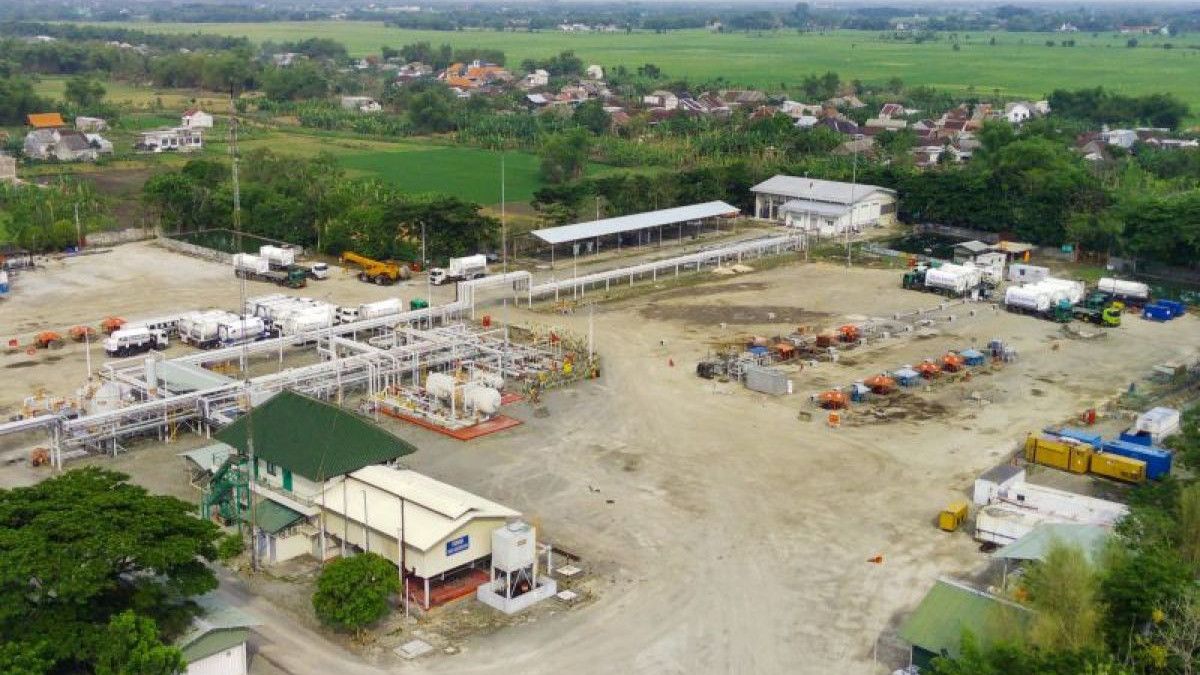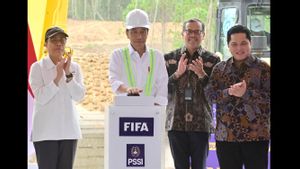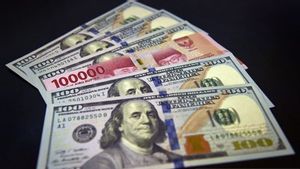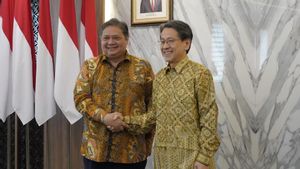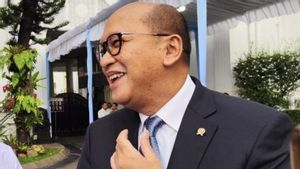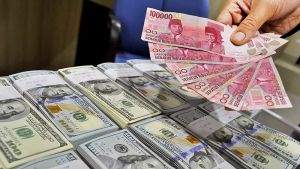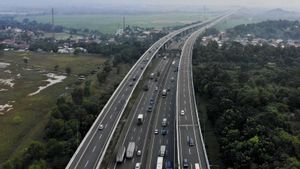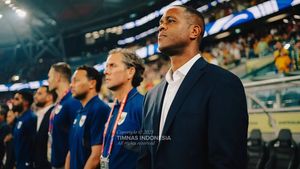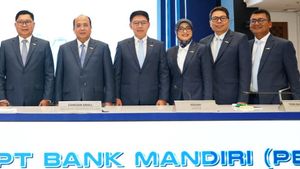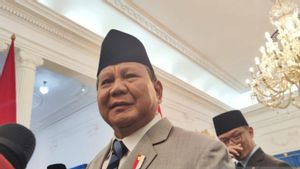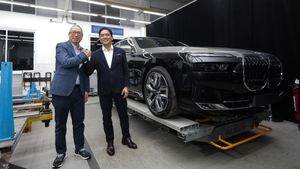JAKARTA - Carbon Capture and Storage (CCS) technology is one of the questions in the debate of the Vice Presidential Candidate. The question regarding CCS was raised by the candidate for vice president number 2 Gibran Rakabuming to Cawapres number 3 Mahfud MD.
Deputy for Maritime Sovereignty and Energy, Coordinating Ministry for Maritime Affairs and Investment (Kemenko Marves), Jodi Mahardi explained, the Indonesian Government is proud to announce strategic progress in implementing Carbon Capture and Storage (CCS) technology as a form of strong commitment to sustainable development.
Indonesia, with a potential CO2 storage capacity of 400 to 600 gigatons in the delayed reservoir and saline aquifer, stands at the forefront of the era of the green industry.
"This potential allows the storage of national CO2 emissions for 322 to 482 years, with an estimated peak of 1.2 gigaton CO2-equivalence emissions by 2030," said Jodi in his statement, Saturday, December 23.
Jodi said that as a pioneer in ASEAN in implementing CCS regulations, and the first level in Asia according to the Global CCS Institute, Indonesia has built a strong legal foundation.
These regulations include the Minister of Energy and Mineral Resources 2/2023 concerning CCS in the upstream oil and gas industry, Presidential Regulation 98/2021 concerning the value of the carbon economy, and OJK Regulation 14/2023 concerning carbon trading through IDXCarbon.
"We are also heading to the completion of the Presidential Regulation which will further strengthen CCS regulations," he said.
He explained that in an effort to achieve Net Zero Emission in 2060, Indonesia has the ambition to develop CCS technology and form a CCS hub. This initiative will not only accommodate domestic CO2 but also explore international cooperation and this marks a new era for Indonesia, where CCS is recognized as a 'license to invest' for low-carbon industries such as blue ammonia, blue hydrogen, and advanced petrochemicals.
"This approach will be a breakthrough for the Indonesian economy, by opening up new industrial opportunities and creating global markets for low-carbon products," he said.
Nevertheless, continued Jodi, CCS requires large investment. Therefore, his party has signed a Memorandum of Understanding (MoU) between the Indonesian government and ExxonMobil recently included an investment of USD 15 billion in the CO2 emission-free industry. In comparison, the CCS Quest project in Canada requires USD 1.35 billion for a capacity of 1.2 million tons of CO2 per year.
SEE ALSO:
"This data highlights the importance of international CO2 storage allocations in facilitating large initial investments for CCS projects," he explained.
He also assessed that neighboring countries such as Malaysia, Timor Leste, and Australia are also competing to become regional CCS centers, because it is important for Indonesia to take advantage of this opportunity as a strategic and geopolitical center.
"This initiative is expected not only to help Indonesia in achieving global environmental goals, but also to encourage sustainable and innovative economic growth," he said.
The English, Chinese, Japanese, Arabic, and French versions are automatically generated by the AI. So there may still be inaccuracies in translating, please always see Indonesian as our main language. (system supported by DigitalSiber.id)
